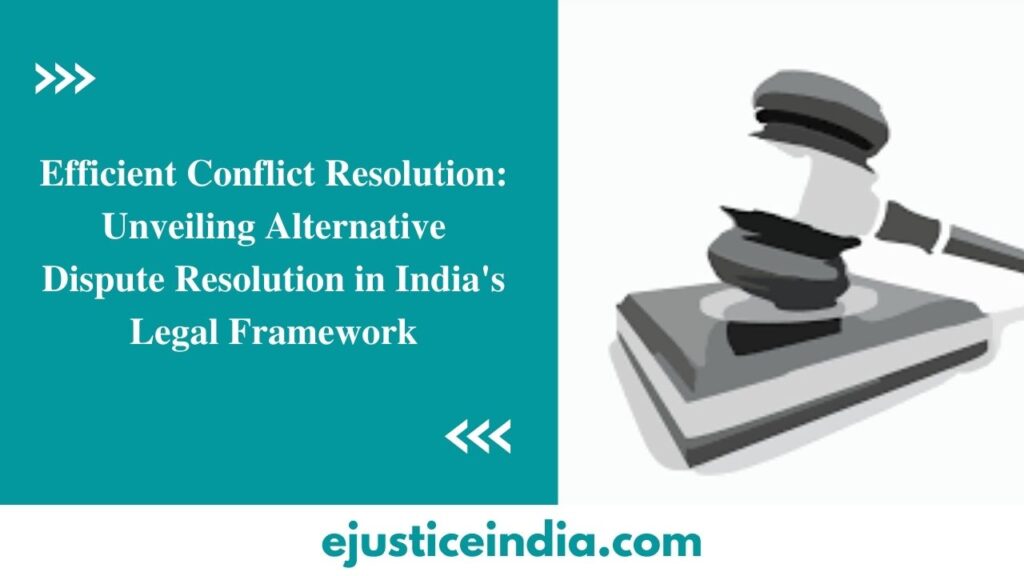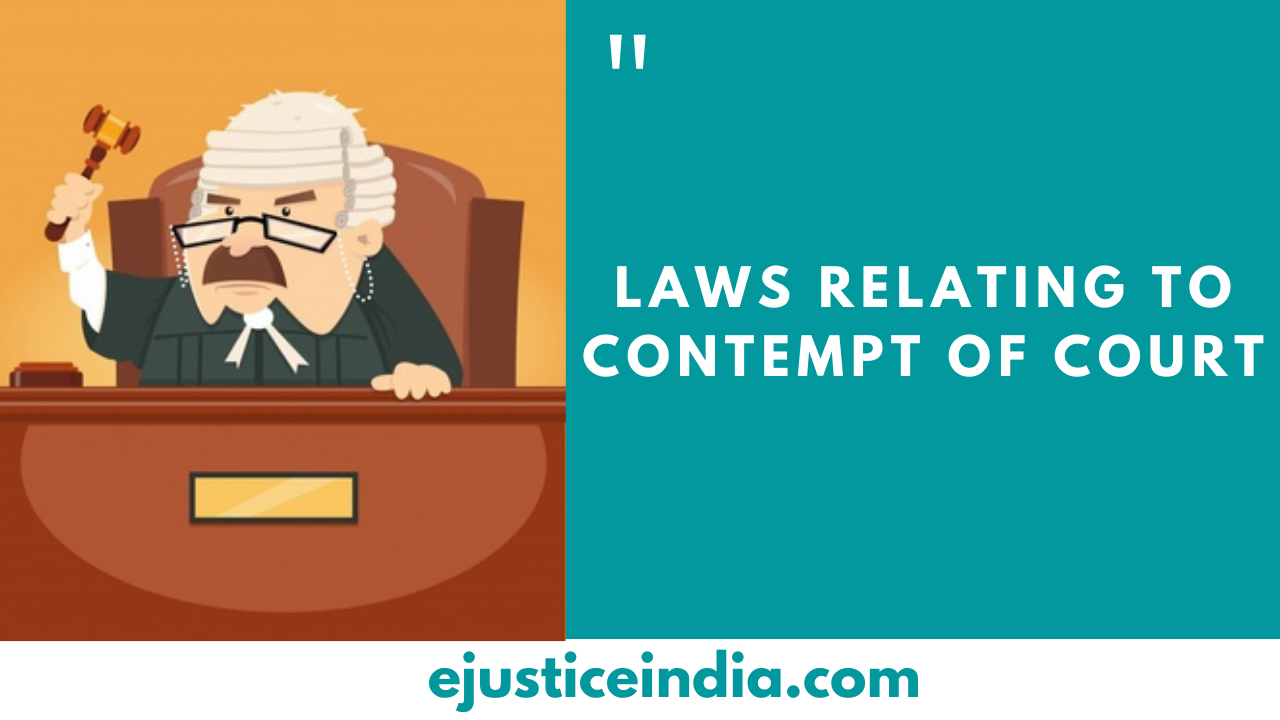Efficient Conflict Resolution: Unveiling Alternative Dispute Resolution in India’s Legal Framework

Author – Vishwash (4th Year Student of The ICFAI University, Dehradun)
In the vast landscape of India’s legal system, the challenge of pending cases has been a longstanding issue. Despite the introduction of fast track courts by the government, the judiciary’s pace often falls short of providing speedy trials. According to data from the National Crime Records Bureau (NCRB) for the year 2018, a staggering 78% of trials conducted in Fast Track Courts across the country took over a year to complete. This highlights the pressing need for alternative solutions to expedite the resolution of disputes and alleviate the burden on the judicial system.
Understanding Alternative Dispute Resolution (ADR)
Alternative Dispute Resolution (ADR) refers to a range of mechanisms and processes used to resolve disputes outside of traditional courtroom litigation. These methods are characterized by their emphasis on efficiency, flexibility, and the empowerment of parties to find mutually acceptable solutions. ADR mechanisms include mediation, arbitration, conciliation, negotiation, and Lok Adalats.
Mediation
Mediation is a voluntary and confidential process in which parties involved in a dispute work with a neutral third party, the mediator, to reach a mutually acceptable agreement. The mediator facilitates communication, assists in identifying common interests, and helps parties explore creative solutions. Unlike arbitration, where a third party imposes a decision, mediation empowers parties to retain control over the outcome. It is particularly effective in resolving disputes where there is a need to preserve relationships or maintain confidentiality.
Arbitration
Arbitration is a formal dispute resolution process in which parties submit their dispute to one or more arbitrators who make a binding decision. It is often used in commercial disputes, where parties have agreed in advance to resolve their disagreements through arbitration rather than litigation. Arbitration offers several advantages, including confidentiality, flexibility in selecting arbitrators, and the ability to tailor procedures to suit the needs of the parties. The Arbitration and Conciliation Act of 1996 governs arbitration proceedings in India and provides a comprehensive framework for the conduct of arbitrations.
Conciliation
Conciliation is a voluntary process in which a neutral third party, the conciliator, assists parties in reaching a mutually acceptable settlement. Unlike mediation, where the mediator facilitates communication, the conciliator takes a more active role in proposing solutions and assisting parties in finding common ground. Conciliation is often used in disputes where parties have reached an impasse and need assistance in overcoming obstacles to settlement. The process is governed by the Indian Arbitration and Conciliation Act of 1996, which sets out the rights and responsibilities of parties and conciliators.
Negotiation
Negotiation is a direct and informal process in which parties attempt to reach a mutually acceptable agreement without the assistance of a third party. It is characterized by open communication, flexibility, and a focus on achieving mutually beneficial outcomes. Negotiation is often used in conjunction with other ADR methods or as a precursor to formal dispute resolution processes. While negotiation is not governed by specific laws, parties may choose to include negotiation clauses in their contracts to encourage settlement of disputes through negotiation.
Lok Adalats
Lok Adalats, or people’s courts, are informal dispute resolution forums established under the Legal Services Authorities Act, 1987. These forums aim to provide speedy and cost-effective resolution of disputes through conciliation and mediation. Lok Adalats are presided over by legal professionals, social activists, or retired judges and operate on Gandhian principles of non-adversarial resolution. Parties can voluntarily submit their disputes to Lok Adalats, and decisions reached through these forums are binding and enforceable as decrees of civil courts.
Applicability of ADRs in Various Disputes
Family Disputes: Family disputes, such as divorce, inheritance, and elder care issues, often involve complex emotional dynamics that can be better addressed through ADR methods like mediation. Mediation allows parties to focus on their interests and concerns, rather than on legal arguments, and facilitates the development of creative solutions that meet the needs of all involved.
Commercial Disputes: In the realm of commercial disputes, ADR methods like arbitration and conciliation are widely used to resolve disagreements arising from contractual breaches, shareholder disputes, and professional negligence claims. These methods offer parties greater flexibility, confidentiality, and cost-effectiveness compared to traditional litigation, making them attractive options for resolving complex commercial disputes.
Industrial Disputes: Industrial disputes between employers and employees often involve complex issues of labor law and collective bargaining. ADR methods like conciliation, facilitated by government-appointed conciliation officers or boards, can help parties reach mutually acceptable solutions and avoid costly and disruptive strikes or lockouts.
Property Disputes: Property disputes, including disputes over ownership, inheritance, and tenancy rights, are common in India’s densely populated urban areas. Negotiation and mediation can be effective tools for resolving these disputes, allowing parties to maintain control over the outcome and avoid protracted litigation.
Conclusion
The current pandemic has exacerbated the backlog of cases in India’s courts, highlighting the urgent need for efficient and accessible dispute resolution mechanisms. ADR methods offer a promising solution to this challenge, providing parties with the opportunity to resolve their disputes quickly, cost-effectively, and amicably. However, the widespread adoption of ADR requires concerted efforts from all stakeholders, including the government, legal professionals, and the public. By promoting awareness of ADR mechanisms, providing training and support for ADR practitioners, and integrating ADR into the legal system, India can pave the way for a more efficient and equitable system of dispute resolution.


